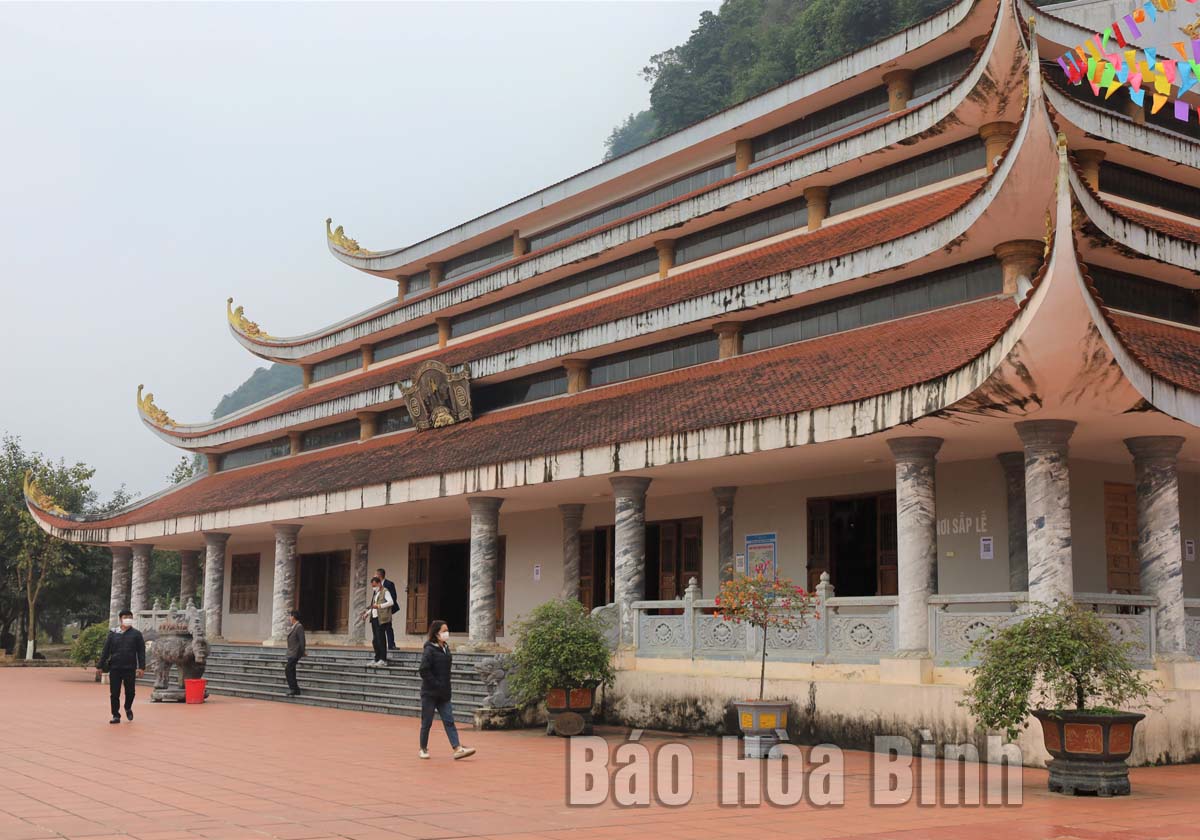



The Tien-Dam Da tourist site in Phu Lao commune, Lac Thuy district, has seriously followed COVID-19 prevention and control measures to ensure safety for tourists.
Cao Thi Dung, a tourist from Hanoi, said she visits the Tien pagoda on the 15th day of the first lunar month every year. As the site is not too crowded this year, she and her family members are not worried about COVID-19 infection.
Dung said she was impressed by the environment there, which has been improved significantly.
The Tien-Dam Da site encompasses many beautiful caves and pagodas that look towards Huong Son Mount where the Huong Pagoda is located. The Tien-Dam Da pagoda complex has been recognised as a national archaeological site. Tourists can visit Trinh and Mau temples, Thuy Tien cave, Trung communal house and Tien Pagoda, explore the flora ecosystem, and take a boat ride on the Rap Bech Bai Com Lake.
According to the management board of relic sites in Lac Thuy district, spiritual tourism at the Tien-Dam Da site is a unique product that has attracted hundreds of thousands of visitors each year.
To make tourists feel secure amid the COVID-19 pandemic, managers of the site has seriously taken measures like regular disinfection, placing hand sanitisers at gates, providing free-of-charge masks for tourists, and asking them to make health declarations through QR code.
Apart from loudspeakers, the management board of the site has asked its workers to supervise tourists’ observance of the Ministry of Health’s 5K message: khau trang (facemask), khu khuan (disinfection), khoang cach (distance), khong tu tap (no gathering) and khai bao y te (health declaration).
The festive season will last until the end of the third lunar month. The number of visitors to the Tien-Dam Da site is forecast to continue dropping due to the pandemic. However, such pandemic prevention and control measures taken by all-level Party Committees and authorities have contributed to creating the image of a safe, friendly and attractive destination for the pagoda complex.